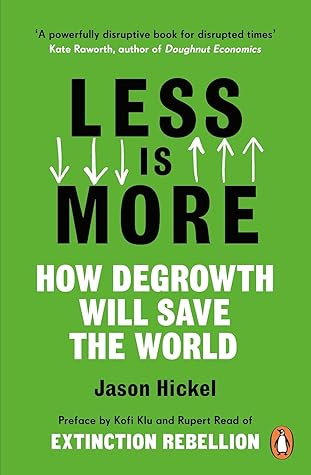More on this book
Community
Kindle Notes & Highlights
It is because of their commitment to growthism that our politicians find themselves unable to take meaningful action to stop ecological breakdown. We have dozens of ideas for how to fix the problem, but we dare not implement them because doing so might undermine growth. And in a growth-dependent economy, that cannot be allowed to happen. Instead, the very newspapers that carry harrowing stories about ecological breakdown also report excitedly on how GDP is growing every quarter, and the very politicians who wring their hands about climate breakdown also call dutifully for more industrial
...more
The point here is that the rise of capitalism in Europe – and Europe’s Industrial Revolution – did not emerge ex nihilo. It hinged on commodities that were produced by enslaved workers, on lands stolen from colonised peoples, and processed in factories staffed by European peasants who had been forcibly dispossessed by enclosure. We tend to think of these as separate processes, but they were all part of the same project, and operated with the same underlying logic.
GDP makes no distinction between $100 worth of tear gas and $100 worth of education. And, perhaps more importantly, it does not account for the ecological and social costs of production. If you cut down a forest for timber, GDP goes up. If you extend the working day and push back the retirement age, GDP goes up. If pollution causes hospital visits to rise, GDP goes up. But GDP says nothing about the loss of the forest as habitat for wildlife, or as a sink for emissions. It says nothing about the toll that too much work and pollution takes on people’s bodies and minds. And not only does it
...more


